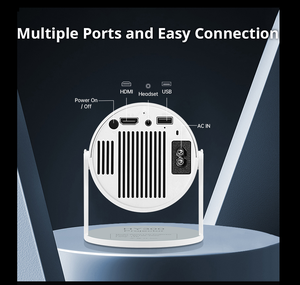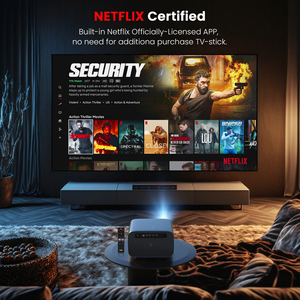(14756 products available)

























































![[Small MOQ] ODM Google TV Mini <strong>LCD</strong> <strong>Proyector</strong> 1080P 4K Support High Lumens 1500:1 Contrast Smart Portable Home Cinema Projector](http://s.alicdn.com/@sc04/kf/Hf182dd28c463492c898809bf5c4b5240E.jpg_300x300.jpg)
![[Small MOQ] ODM Google TV Mini <strong>LCD</strong> <strong>Proyector</strong> 1080P 4K Support High Lumens 1500:1 Contrast Smart Portable Home Cinema Projector](http://s.alicdn.com/@sc04/kf/H14be8da69dd44683973bfc66f9ef3587K.jpg_300x300.jpg)
![[Small MOQ] ODM Google TV Mini <strong>LCD</strong> <strong>Proyector</strong> 1080P 4K Support High Lumens 1500:1 Contrast Smart Portable Home Cinema Projector](http://s.alicdn.com/@sc04/kf/H3544baff8f324246985de72aeaa4f03aP.jpg_300x300.jpg)
![[Small MOQ] ODM Google TV Mini <strong>LCD</strong> <strong>Proyector</strong> 1080P 4K Support High Lumens 1500:1 Contrast Smart Portable Home Cinema Projector](http://s.alicdn.com/@sc04/kf/Hd14a0a1f0f354803aac732bc917250c11.jpg_300x300.jpg)
![[Small MOQ] ODM Google TV Mini <strong>LCD</strong> <strong>Proyector</strong> 1080P 4K Support High Lumens 1500:1 Contrast Smart Portable Home Cinema Projector](http://s.alicdn.com/@sc04/kf/H574cc53e4b1f420a809b7bef378e8ee15.jpg_300x300.jpg)
![[Small MOQ] ODM Google TV Mini <strong>LCD</strong> <strong>Proyector</strong> 1080P 4K Support High Lumens 1500:1 Contrast Smart Portable Home Cinema Projector](http://s.alicdn.com/@sc04/kf/H450d274bd9234c74a95038cc86ee80bez.jpg_300x300.jpg)
















































































































































An LCD projector, a type of projector, utilizes liquid crystal display technology to present pictures or videos on a screen on content. There are various kinds of LCD projectors: the Multimedia LCD Projector, XGA LCD Projector, WXGA LCD Projector, 4K LCD Projector, and Home Theater LCD Projectors.
Multimedia LCD Projector:
This kind of projector can play a wide range of sound and video designs. It interfaces with PCs, DVD players, and media sound framework through links. It is normally utilized in shows and meeting corridors. It has a brightness setting of around 700-1000 (ANSI) lumens, great for medium screen seeing. For increased lucidity, the projector offers a separation guarantee of 1.5-1.9 for every surround. The base screen estimated is 40 inches, while the maximum is 300 inches. The projector utilizes Optical TFT LCD with Respectful Shade and X-Vue innovation. It has a DVI, VGA, and composite video port.
XGA LCD Projector:
It is a sort of mixed media projector with an entirely savvy outline. It is outfitted with XGA goals and can create sharp pictures. It is reasonable for applications that require more detail, like architectural visualization, surgical command posts, and computer-generated realities. The LCD projector is intended for conference rooms, classrooms, and businesses. It has a brightness setting of around 3000-4000 ANSI lumens, which is fair for vast, sufficiently bright spaces. Its base screen measured is a limit of 3000 inches, and it offers a degree of 3000:1 differentiation.
WXGA LCD Projector:
It has a wide XGA (1024×768) goals with magnificence picture lucidity. The WXGA projector is known for its suitability for exhibiting purposeful media, presentations, and games.
4K LCD Projector:
The projector has 4K goals to convey exceptionally sharp pictures that are sensible. The projector is with upscaling capabilities to extend the resoluteness of pictures, thus making them appear to be additional together copied pictures. These projectors are outfitted with HDR (Estimation Range Partnered) reinforcement to supply tainted tones along with additional agreeable detail.
Home Theater LCD Projector:
Its contrast scope is essentially merely 4000:1. This causes room theaters to look fabulous. The goal can extend as much as 1920:1080, conveying sharp pictures. Majority Guidelines (1917, 12G, and 60Hz.) are vital for projector earlier models, joining 4K at an exceptionally high frame article per second. The home theater projector is supplied with HDMI yield and virtual sound yield (aux yield) for handy formal cable transfers to quality sound speakers and steadfast stereos.
Lcd projectors have several features that make them useful for entertainment purposes, business presentations, and educational purposes. Here are some common features of the Lcd projector;
The purpose of the LCD projector is to increase the presentation's overall impact, whether in a corporate boardroom, a classroom, or during an event. Here are some specific applications:
Business Presentations
During data-driven presentations for large audiences, stakeholders can use a 4k LCD projector to display financial graphs, market analysis, and strategic plans. The projectors can help to clarify complex ideas, making the presentation more engaging and informative compared to using a flipped chart or slide carousel.
Training and Workshops
Instructors and trainers can use an LCD projector to display detailed diagrams, step-by-step procedures, and video demonstrations in a workshop setting. This will accommodate different learning styles and enhance knowledge retention, making the training more effective than traditional lectures.
Educational Purposes
Teachers can use the projector to bring interactive lessons to life through multimedia content, such as animated lessons, quizzes, and educational games. This will foster a dynamic classroom environment that encourages student participation and improves academic performance.
Event Production
During live entertainment events like concerts and theater, producers can use the projector to create stunning visual backdrops, display video footage, and project dynamic lighting effects. This will enhance the overall artistic expression and audience engagement of the event compared to traditional stage decorations.
Medical Imaging
Surgeons and healthcare professionals can use the projector to display large images of diagnostic scans, anatomy diagrams, and live imaging during procedures. This will improve visualization and collaboration among the medical team, enhancing patient care and procedural accuracy.
Buyers should choose an LCD projector that suits the unique needs of their customers. So, before making a purchase, buyers should do market research and identify current trends. Find out what customers like and what features are in high demand. Then, use this information to guide buying decisions. The Wi-Fi feature has become a must-have in modern projectors. People prefer having the option to connect their devices to the projector with a wireless connection. So, buyers should buy projectors with built-in Wi-Fi connectivity. Some buyers may need 4K projectors with high-resolution images. Others may need LCD projectors with lower resolutions and brightness for standard images. Know your customers' preferences and visual quality requirements.
Target customers using portable projectors for business presentations and outdoor activities. Others may work from home and use a projector for meetings. Such customers will appreciate lightweight models with compact designs. On the other hand, buyers looking for home theater projectors will choose large models with high brightness and resolution. People who use projectors in dark rooms will settle for lower-resolution models.
Guide buyers on maintenance
Before making a purchase, consider the projector's lamp life. Projectors with long lamp lives will require less maintenance. Users won't need to replace the lamp after a short time. Also, find out how different projector models require maintenance. Simple maintenance routines will make it easy to take good care of the projector. Finally, consider the long-term cost of ownership and the projected return on investment. By weighing these factors, buyers can carefully decide which models to buy. Buyers should also consider the brand's reputation and after-sales support. Reputable brands offer projectors with reliability and consistent performance. Also, choose brands that offer replacement parts and timely support in case the projector develops technical problems.
Q: How can an LCD projector be maintained?
A: Maintenance is important for ensuring that an LCD projector serves its users for a long time. This may involve routinely cleaning the air filters, lens, and lamp to prevent dust build-up. Additionally, make sure to use only high-quality replacement lamps and keep the projector firmware updated. Also, avoid exposing the LCD projector to extreme temperatures and always store it in its case when not in use.
Q: What is the difference between a rated and a real LCD projector?
A rated LCD projector has a brightness specification that the manufacturer provides. This specification is usually based on testing done in controlled lighting conditions. On the other hand, a genuine LCD projector's brightness is measured in real-world conditions. Therefore, the rated projector might appear brighter than a genuine LCD projector. This makes the rated projectors more marketable than the real ones, even though they are quite similar in functionality.
Q: Does the size of the screen matter when using an LCD projector?
A: Yes. The projected image quality depends on the screen size. Huge screens require more brightness and contrast for the image to be clear. For an impressive image quality, it is advisable to go for a screen size that is compatible with the projector's specifications.
Q: What are the safety tips when using an LCD projector?
A: To be on the safe side, use the LCD projector within its specified temperature range. This ensures that it doesn't overheat. Also, don't touch the top or sides of the projector while it's running, as it can get extremely hot. Be careful with the lens, as they are sensitive and can get damaged easily. Finally, always use proper rigging and brackets if mounting the LCD projector.